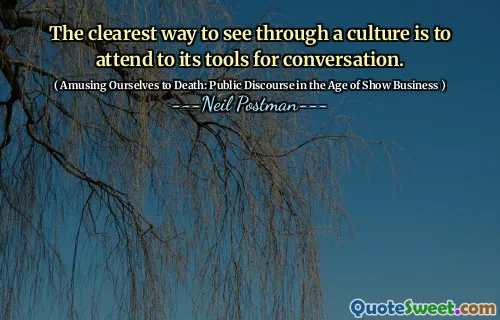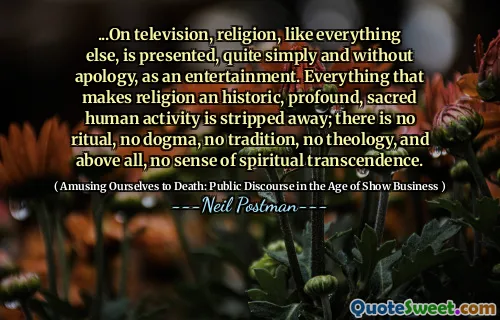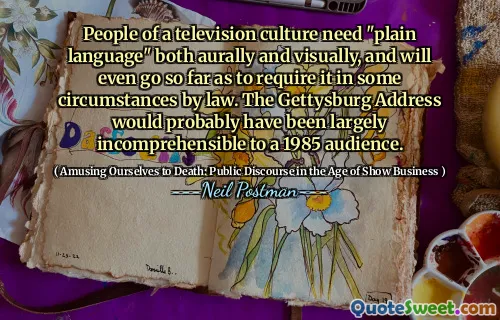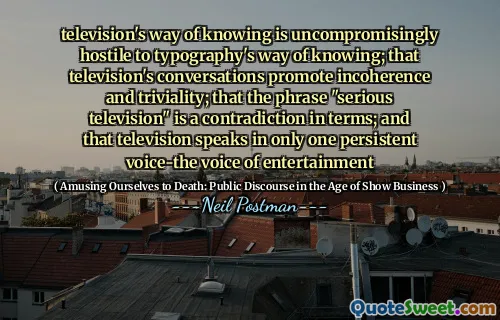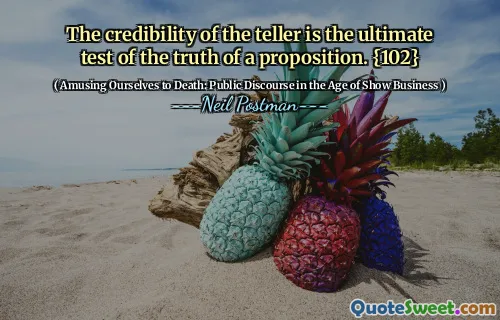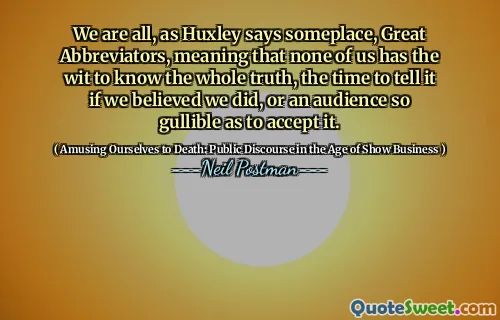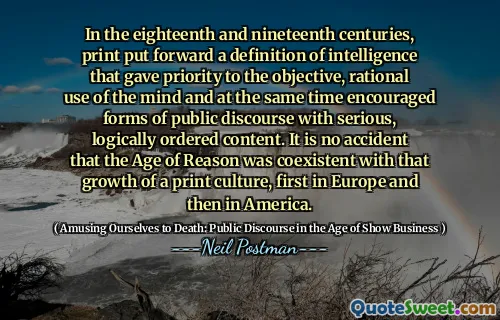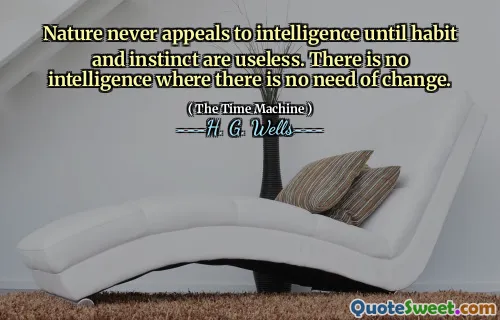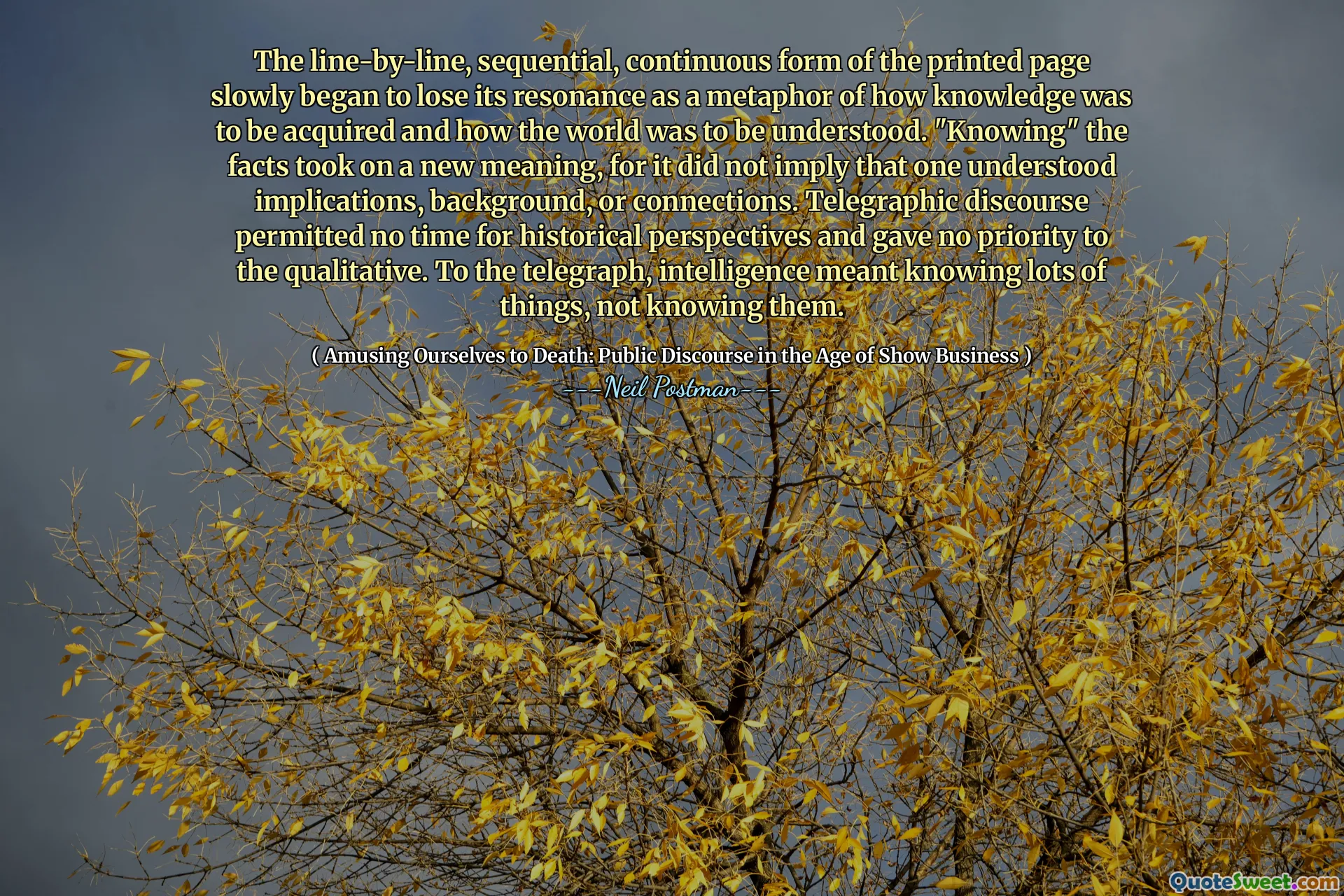
The line-by-line, sequential, continuous form of the printed page slowly began to lose its resonance as a metaphor of how knowledge was to be acquired and how the world was to be understood. "Knowing" the facts took on a new meaning, for it did not imply that one understood implications, background, or connections. Telegraphic discourse permitted no time for historical perspectives and gave no priority to the qualitative. To the telegraph, intelligence meant knowing lots of things, not knowing them.
In Neil Postman's "Amusing Ourselves to Death," he discusses the shift in how knowledge is perceived in an age dominated by telegraphic communication. The traditional printed page, once a rich source for understanding and acquiring knowledge through its comprehensive, sequential structure, has lessened in significance. Instead of emphasizing the depth of knowledge, contemporary communication prioritizes quick, factual information, often disconnected from context and deeper understanding.
This change redefines "knowing" from understanding intricate connections and implications to merely accumulating pieces of information. The rapid and fragmented nature of telegraphic discourse does not allow for historical context or qualitative assessment, leading to a superficial grasp of facts. Thus, the measure of intelligence shifts from deep comprehension to the breadth of information one can recall, highlighting a potential decline in the quality of public discourse.
